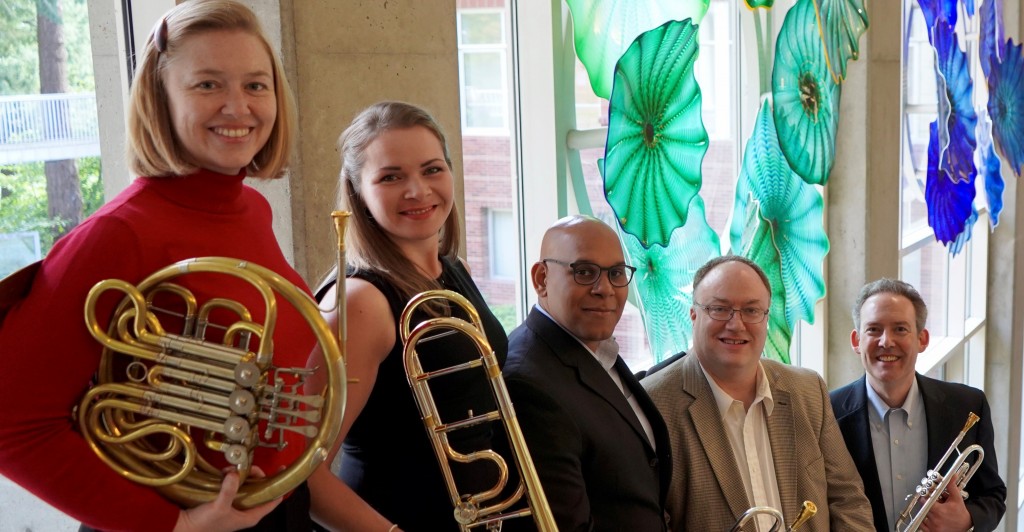Page 408 • (12,447 results in 0.066 seconds)
-
of nerves, anticipation and excitement. She had never been to Washington, and “didn’t know a soul” at PLU (then Pacific Lutheran College). When the train stopped in downtown Tacoma, for a moment, so did her heart. She clutched the monogrammed luggage she received as a high school graduation gift, and departed. A senior from Knutson’s soon-to-be college was standing there with a warm smile and a cardboard sign with her name on it. She still remembers how special and welcome she felt that momentous
-
Calling all Social Workers...Contact us and let us know where you are and what you are doing since leaving PLU. We’d love to hear from you. Email us at: socw@plu.eduEmily Goodright '15I recently accepted a position at Work Opportunities, a non-profit organization that assists individuals with developmental disabilities in obtaining employment and engaging in their communities. I am a Community Access Specialist, and I get to work with individuals in their communities supporting them in
-
Washington, her young mind was a swirling sea of nerves, anticipation and excitement. She had never been to Washington, and “didn’t know a soul” at PLU (then Pacific Lutheran College). When the train stopped in downtown Tacoma, for a moment, so did her heart. She clutched the monogrammed luggage she received as a high school graduation gift, and departed. A senior from Knutson’s soon-to-be college was standing there with a warm smile and a cardboard sign with her name on it. She still remembers how
-
Learn More: Makonde Body MaskThese lipiko masks, which in the language of the Makonde people means “helmet mask.” come from the minority ethnic group of the Makonde live in southern Tanzania and northeastern Mozambique, both north and south of the Rovuma River. The Makonde first came to the region in the eighteenth and nineteenth century seeking refuge from the slave trade and they have continued to experience a great deal of cultural transformation and change over the past century, but
-
Learn More: Makonde Mask 1These lipiko masks, which in the language of the Makonde people means “helmet mask.” come from the minority ethnic group of the Makonde live in southern Tanzania and northeastern Mozambique, both north and south of the Rovuma River. The Makonde first came to the region in the eighteenth and nineteenth century seeking refuge from the slave trade and they have continued to experience a great deal of cultural transformation and change over the past century, but especially
-
Learn More: Makonde Mask 2These lipiko masks, which in the language of the Makonde people means “helmet mask.” come from the minority ethnic group of the Makonde live in southern Tanzania and northeastern Mozambique, both north and south of the Rovuma River. The Makonde first came to the region in the eighteenth and nineteenth century seeking refuge from the slave trade and they have continued to experience a great deal of cultural transformation and change over the past century, but especially
-
Learn More: Makonde Mask 3These lipiko masks, which in the language of the Makonde people means “helmet mask.” come from the minority ethnic group of the Makonde live in southern Tanzania and northeastern Mozambique, both north and south of the Rovuma River. The Makonde first came to the region in the eighteenth and nineteenth century seeking refuge from the slave trade and they have continued to experience a great deal of cultural transformation and change over the past century, but especially
-
Learn More: Makonde Mask 4These lipiko masks, which in the language of the Makonde people means “helmet mask.” come from the minority ethnic group of the Makonde live in southern Tanzania and northeastern Mozambique, both north and south of the Rovuma River. The Makonde first came to the region in the eighteenth and nineteenth century seeking refuge from the slave trade and they have continued to experience a great deal of cultural transformation and change over the past century, but especially
-

Washington. “But we live in terrible conditions and earn barely enough to get by. ‘Liberty and justice for all,’ you say. Really?” The angry mother and the worn-out field worker give voice to the ancient plea: “Act with justice and righteousness, says the Lord, and deliver from the hand of the oppressor anyone who has been robbed. And do no wrong or violence to the alien, the orphan, and the widow, or shed innocent blood in this place” (Jeremiah 22:3). About The Lutheran Studies Conference When: 9:30 a.m
-

Lyric Brass CD Release Posted by: Kate Williams / December 14, 2018 December 14, 2018 By Kate Williams '16Outreach ManagerThis week we sat down with Dr. Zachary Lyman to talk about everything from recording issues and Bach, to the new Lyric Brass CD and everyone involved in this project. Read on! What can we find in this CD? The CD contains 4 works by J.S. Bach, without question the most well-known Lutheran composer of all time. The first three works are arrangements of fugues from Bach’s
Do you have any feedback for us? If so, feel free to use our Feedback Form.


